On View
In Pictures: A Texas Exhibition Shines a Light on Paintings of Women, by Women
"Women Painting Women" is at the Modern Art Museum of Fort Worth through September 25.
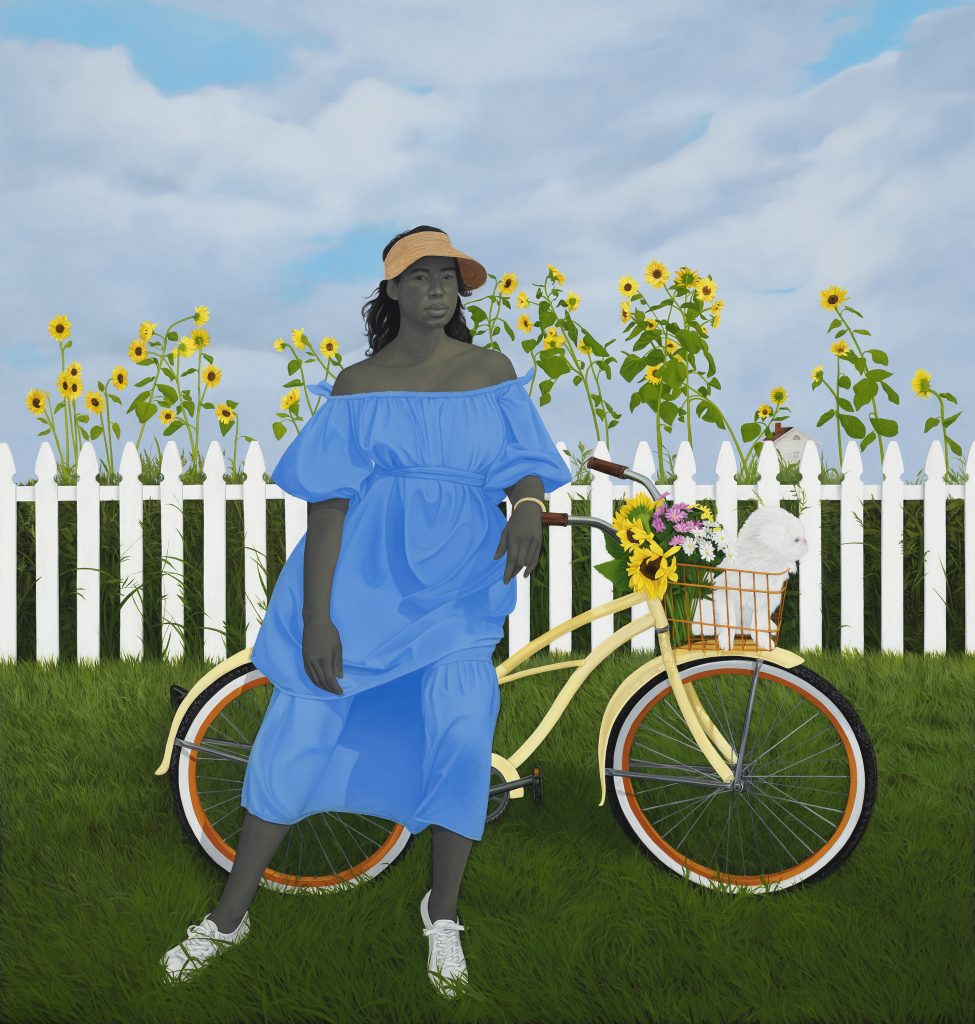
"Women Painting Women" is at the Modern Art Museum of Fort Worth through September 25.

Vittoria Benzine

Through September 25, the Modern Art Museum of Fort Worth presents 46 international female-identifying artists who focus on female subject matter in their works. The exhibition, titled “Women Painting Women,” brings together 60 portraits spanning the late 1960s to the present, recognizing “female perspectives that have been underrepresented in the history of postwar figuration,” according to the museum.
“Women Painting Women” approaches these aims over four thematic sections. “The Body” considers the full spectrum of figuration, “from unidealized to fantasized nudes,” the museum states in a press release. Works by stars like Mickalene Thomas and Alice Neel appear here.
“Nature Personified” explores appearances of mythological archetypes, like priestesses and goddesses—and their metaphysical powers—through the work of forces of nature like Tracy Emin.
Faith Ringgold and Amy Sherald have work in the section “Color As Portrait,” which “accounts for the exaggerated or dramatic use of color and form to convey content about female identity, including race, gender, and archetypes.”
In “Selfhood,” Elizabeth Peyton, Marlene Dumas, and more examine how psychology manifests in the physical form.
The show centers around painting—a medium traditionally associated with the privileged male artists who have dominated the art historical canon until recently. “The pivotal narrative in ‘Women Painting Women’ is how these artists use the conventional portrait of a woman as a catalyst to tell another story outside of male interpretations of the female body,” chief curator Andrea Karnes said in a statement. “They conceive new ways to activate and elaborate on the portrayal of women.”
“Replete with complexities, realness, abjection, beauty, complications, everydayness, pain, and pleasure, the portraits in this exhibition connect to all kinds of women,” Karnes adds, “and they make way for women artists to share the stage with their male counterparts in defining the female figure.”
See works from the exhibition below.
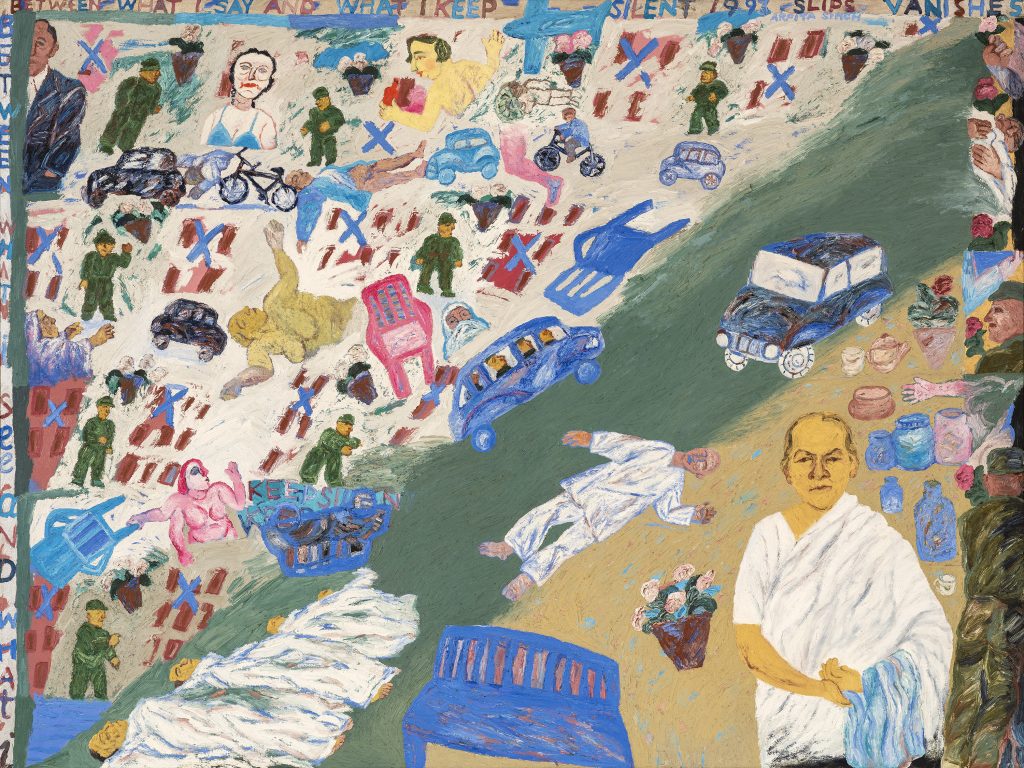
Arpita Singh, My Mother (1993), oil on canvas, from the collection of Sharad and Mahinder Tak. Photo: © Arpita Singh, courtesy Kiran Nadar Museum of Art and Talwar Gallery.
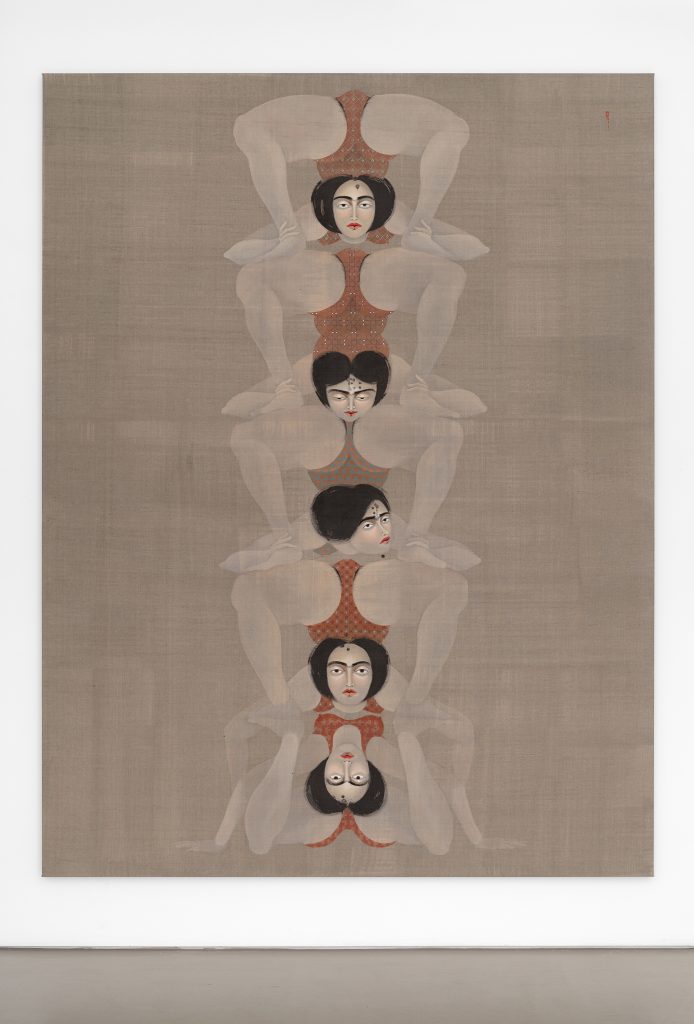
Hayv Kahraman, The Tower (2019), oil on linen. Photo: © Hayv Kahraman, courtesy of the artist and Jack Shainman Gallery, New York.
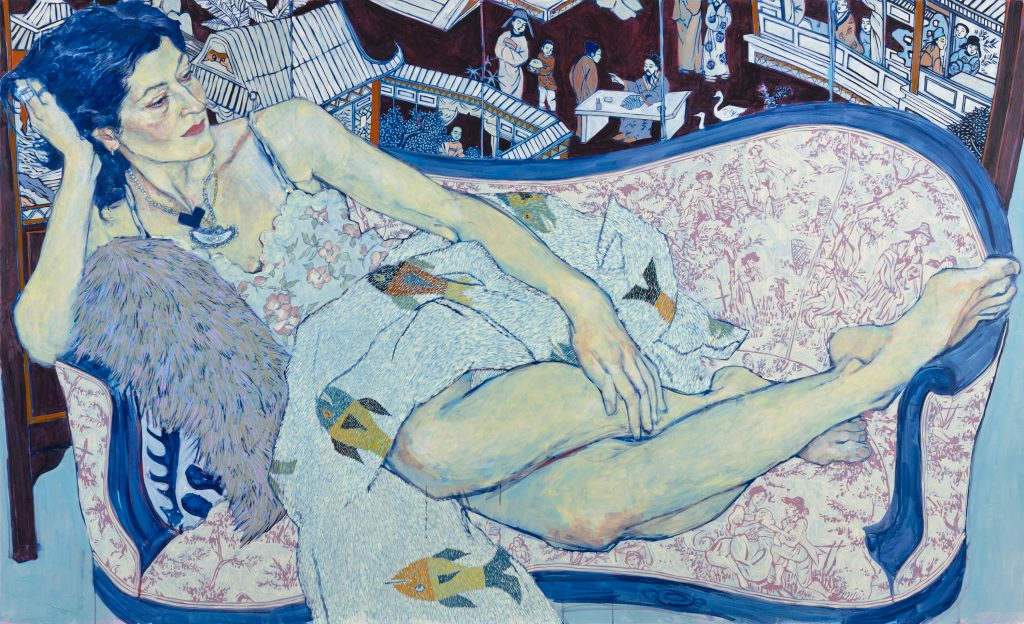
Hope Gangloff, Queen Jane Approximately (2011), acrylic on canvas. Collection of Alturas Foundation, San Antonio, Texas. Photo: © Hope Gangloff, Courtesy of the Artist and Susan Inglett Gallery, NYC.
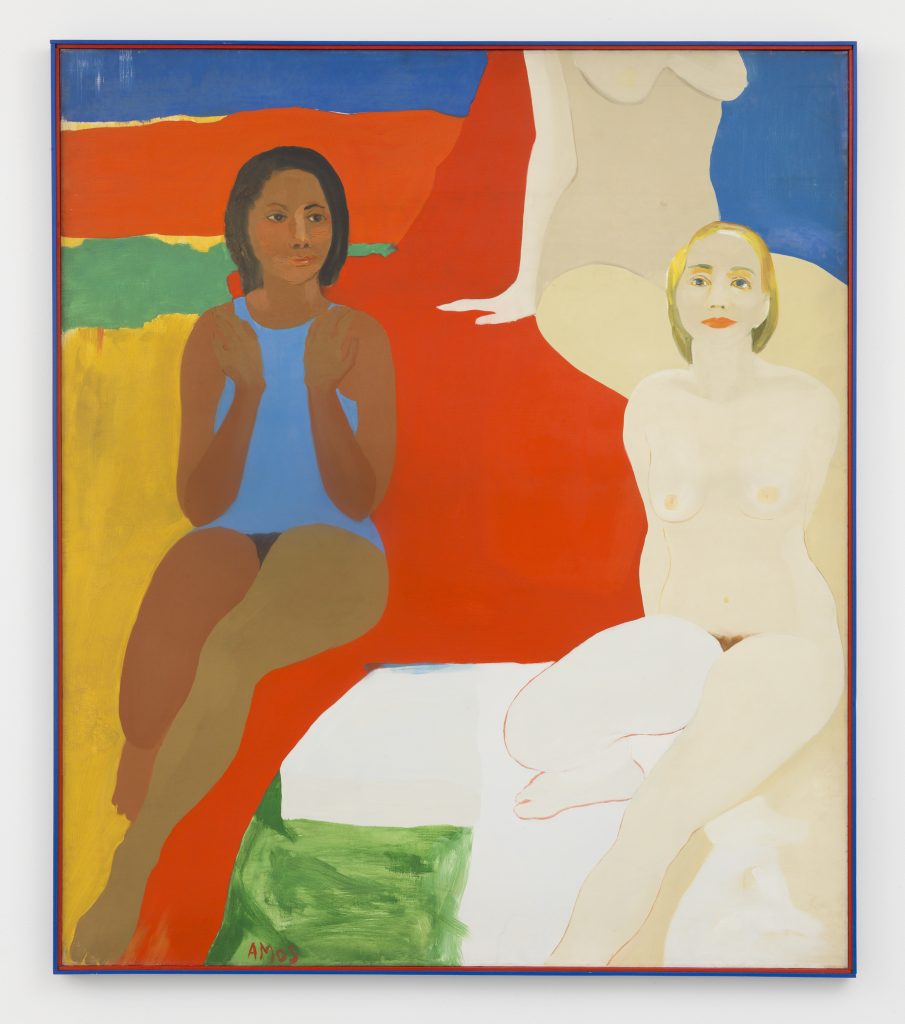
Emma Amos, Three Figures (1967), oil on canvas. The John and Susan Horseman Collection. Photo: © Emma Amos, Courtesy Ryan Lee Gallery, New York.
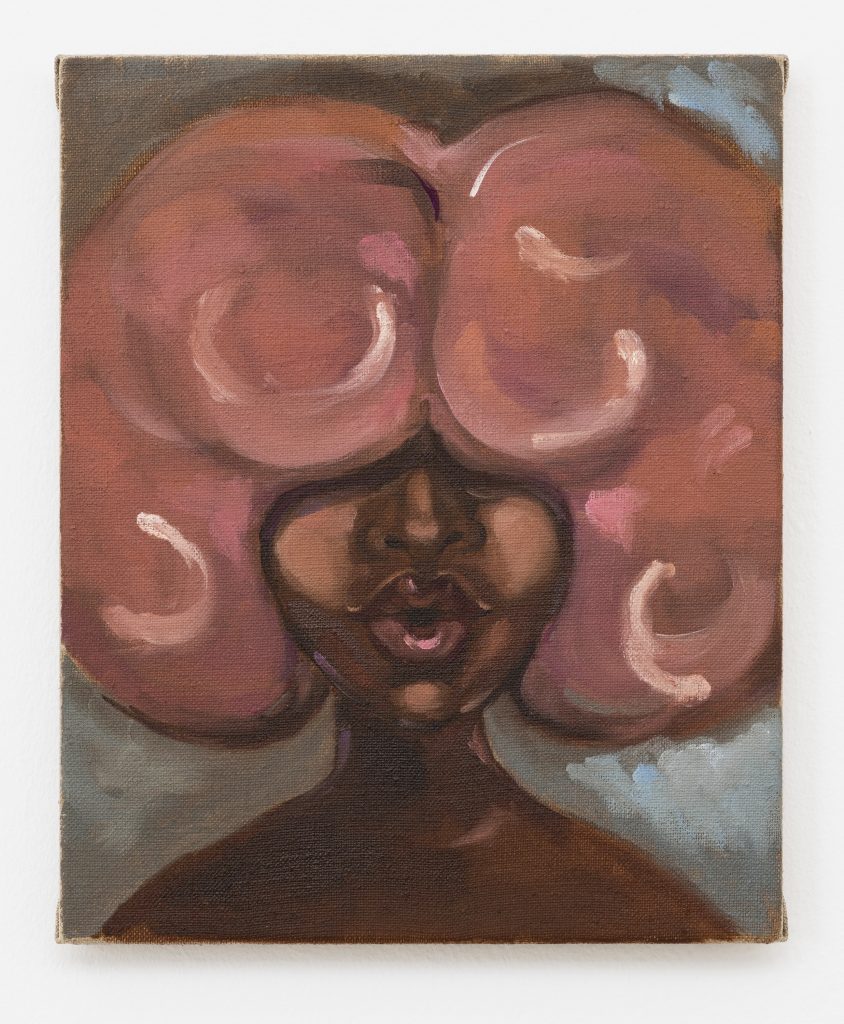
Somaya Critchlow, Untitled (Pink Hair) (2019), oil on linen. Isabella Wolfson Townsley Collection, London. Photo: © Somaya Critchlow, image courtesy the artist and Maximillian William, London.